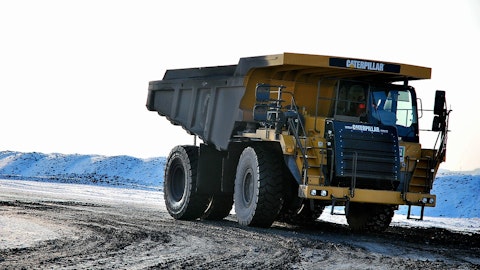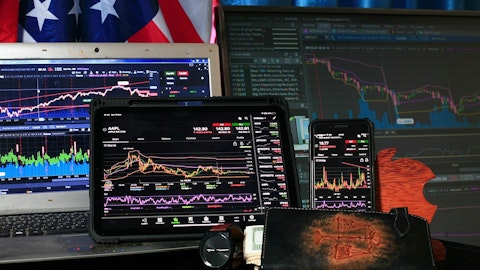Operator: Our next question comes from Kevin McCarthy with Vertical Research Partners.
Kevin McCarthy: Can you discuss your view of the U.S. polyethylene contract pricing opportunities seems as though spot export prices have come up appreciably year-to-date, while producer inventory has been rationalized to some extent. So perhaps you can talk through what you’re seeking currently and your level of confidence that will turn the corner and start to see contract prices move higher as the first quarter progresses?
Peter Vanacker: Thank you, Kevin. Well, it’s clear that we continue to have price increases out there in the U.S. market. And we’re hopeful that these price increases, we see at least there is a good development in the marketplace. Ken?
Kenneth Lane : Yes. So look, I’m confident we’ve seen strength in the export market that we did not see last year. So that’s a good indication. And I think I mentioned this on the third quarter earnings call, we’ve sort of seen prices come down to all those parity with export pricing. So as you see exports go up, you should see domestic prices moving up, and I’m confident then the first quarter, we’re going to see some increases here.
Operator: Our next question comes from the line Joshua Spector with UBS.
Joshua Spector: Just on APS, I’d just be curious if you want to comment on what the normalized earnings of that residual business is — I mean, if you move $200 million over, I think even looking prepandemic, maybe there’s $200 million in residual, like $250 million residual. Schulman used to be about $200 million, and you’ve got some synergies on top of that. So curious if you could give us some color there.
Peter Vanacker: Definitely very good question, Josh. And this is one of the reasons why we have repositioned this APS business as well because we are, of course, not happy at all with the results in the APS business. And yes, there are lots of factors that they roll on market demand and higher costs that we have seen last year, energy cost feedstock costs — so therefore, we have decided to mic reposition this business. And like run it as a separate company within LyondellBasell. Michael, do you want to add?
Michael McMurray : Yes. Peter, first, I just want to say and express that I’m excited to have the opportunity to lead the Advanced bottomer solutions business through the transformation that we’re embarking on. And I see a lot of potential in this business. And I put it in place a team that I think really can deliver. And the steps that we’re taking, this Catalloy and , or polybutenes or where that we’re — we really view as a better fit in the O&P segment. This enables the new, what I call the new APS, to be very focused on our core value-creating model of compounding and customer solutions for brand owners and OEMs. We did well on the integration and cost reductions, but our APS business needs a much more customer-centric operating model.
And this is going to be part of the journey that we are now embarking on it with the transformation. And our focused improvements in customer intimacy, technical support and service levels I think will really allow us to fix this business and grow it in a profitable way. And I’m looking forward to share more about this transformation journey at the Capital Markets Day coming up.
Operator: Our next question comes from the line of David Begleiter with Deutsche Bank.
David Begleiter : Peter, on your Circulen volumes, what are the price premiums you’re receiving and what types of margins are you realizing on these Circulen volumes?





